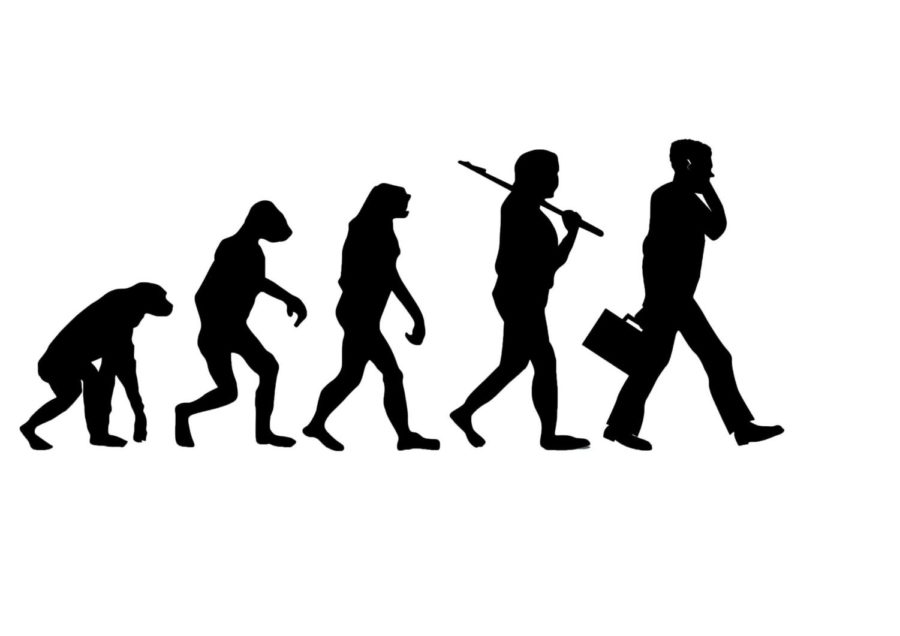Vriezen: Media representation of evolution isn’t helping
Scientists tell us that the selective forces of evolution have changed the human population over time, but less than 40 percent of Americans believe in Evolutionary Theory.
October 6, 2011
For some strange reason, evolution is still a contentious issue in America. Despite the fact that upwards of 97 percent of scientists, the National Academy of Science and countless Nobel Prize winners have come out in support of this fundamental tenet of biological studies, it is still hotly debated among politicians, lawmakers and communities. The fossil record, genetic evidence, laboratory experiments and natural observations don’t seem to be enough evidence for some people.
As a student of biology, it is hard for me to understand how people can reject the well-supported principles of natural selection, especially how people can reject the idea that these selective forces cause changes in the genetic frequencies of populations over vast spans of time.
That is, until I see the images presented in the media regarding scientific news. CNN recently published a story about a group tracking genetic changes in human populations over 140 years. The accompanying picture was from “X-Men: The Last Stand” depicting a man who seems to have grown large feathery wings.
The caption below reads, “Humans are still evolving, scientists say, but don’t expect any winged mutants like this one from ‘X-Men: The Last Stand.'” The article later jokingly asks the scientists involved about humans evolving super powers. Of course, the answer given by the researcher is “no.”
Now, I know that the reporters at CNN were likely trying to provide an image that readers would recognize and perhaps relate their knowledge of evolution to and perhaps ask a question in good humor. But the fact is that relating the concept of evolution to a science fiction story such as X-Men is giving an incomplete, misleading or downright false representation of evolution.
Evolution does not mean that, given the right conditions, your offspring will spontaneously be born with wings, nor will individuals gain the ability to grow wings through a single genetic mutation. While the story of X-Men is quite obviously fictional, when these types of images are used in conjunction with actual scientific news, readers aren’t getting an accurate scientific representation.
While it is undoubtedly important for the general public to receive information about scientific advances and discoveries, obtaining this information through the popular media sometimes isn’t the best option. News websites will try to get page views, sell papers or magazine, or try to get a good story by reporting scientific research prematurely or perhaps inadequately.
While the problem isn’t exclusively based in the media, surveys regarding the acceptance of evolution in America show disheartening trends. Organization such as Gallup report that less than 40 percent of Americans will answer “yes” to the question, “Do you, personally, believe in the theory of evolution?” One quarter of respondents will say they don’t believe in evolution, while another 36 percent claim no opinion.
While there are many reasons individuals have for rejecting evolution (though the tendency is to cite religious beliefs), it certainly doesn’t help the cause of scientific education and literacy when human evolution is equated with X-Men.
While I find it is never a good idea to take comments found in online threads as representative of our population, far too frequently you see references to scientists never having observed a dog give birth to a cat, a fish growing wings or the records of something akin to the infamous “crocoduck,” as proposed by the evangelist and creationist Kirk Cameron.
This, folks, is not evolution. These are the concepts of science fiction.
This misunderstanding of how species change is only perpetuated when attention-grabbing pictures of X-Men are used in news stories. Evolution is not suddenly sprouting wings, giving birth to a whole new species or making some sort of mix between two species. Evolution is instead a simple concept of how species change over generations upon generations. It may help with scientific literacy if news outlets remembered this.







